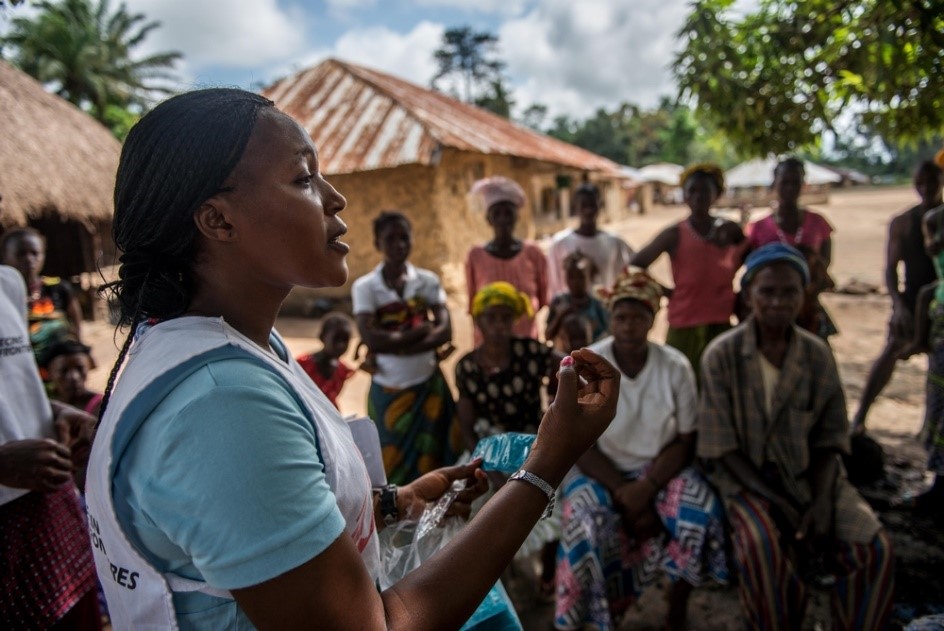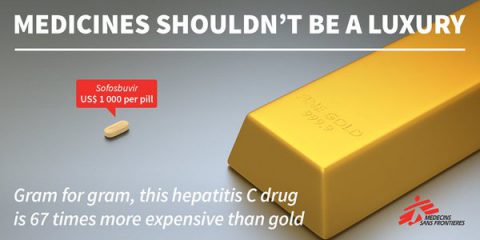Finding solutions and pushing boundaries – MSF Scientific Days 2017
| 14 June, 2017 | Molly Cranston, Christina Tang and Theo Isaac |
|

|
Three members of our editorial team at F1000Research, Christina Tang, Theo Isaac and Molly Cranston, had the pleasure of attending MSF Scientific Days and provide a brief overview of what was discussed

Médecins Sans Frontières (MSF) Scientific Days were held at the Royal Society of Medicine in London on 19th and 20th May 2017. This conference brings together researchers from around the world to showcase their medical research. Similarly to last year, the conference was split into two parts: Medical Research and Innovation. Three members of the editorial team at F1000Research, Christina Tang, Theo Isaac and Molly Cranston, had the pleasure of attending MSF Scientific Days and provide a brief overview of what was discussed.
MSF in the field
Friday’s Medical Research day kicked off with a session on the treatment of HIV and tuberculosis, with a series of engaging talks discussing various studies across the globe. Of particular interest was a talk by Dr. Alison Wringe, London School of Hygiene and Tropical Medicine, exploring treatment failure among Malawian adolescents with HIV, a vulnerable group that are often overlooked. This is why understanding their compliance with HIV treatment is crucial. The study highlighted that poor communication was hindering treatment, with too strict rules and threats of negative consequences undermining adherence.
As the day progressed, many of the challenges facing MSF were discussed, along with research aims to improve patient treatment and emergency responses. Several stimulating talks reviewed what MSF has learnt from their responses to major conflicts. A particular highlight was a talk by Dr. Manuela Rehr, Harvard University, looking at non-communicable disease healthcare access for non-camp Syrian refugees. The study found that more than 60% of refugees reported affordability as the main problem to healthcare access. Additional afternoon talks discussed similar themes related to improving the access and quality of healthcare, while the day concluded with several presentations on the prevention and elimination of disease.
New technology, new outlooks
In the settings in which MSF operates, it is crucial that sustainable technology and programmes are implemented. Innovation remains a vital part in the humanitarian sector in delivering solutions to some of the world’s most destitute areas. On Saturday’s Innovation Day, presentations ranged between solving basic operational challenges to more overarching situations, such as surveillance mapping.
One of the highlights was the Missing Maps project. It may sound surprising to some, but today there are still many parts of the world that are still ‘missing’. Without accurate and accessible map data, it makes it more challenging for responders to coordinate and respond to humanitarian crisis in the most remote places – Missing Maps aims to change this.
Nell Gray, Qualitative Research Officer at MSF, presented a review on this project, which launched in November 2014. Missing Maps has shown improvement in the quality and performance of a number of activities, such as combining data collected with base maps or GIS, and overall, the project is clearly beneficial for MSF in the field.
Additionally, Dr. Benjamin Herfort, University of Heidelberg, and Dr. Ziad El-Khatib, Harvard Medical School, discussed two different smartphone applications, MapSwipe and Argus, both of which have also shown to be effective in contributing to humanitarian mapping efforts.
With all these new and effective e-health products, these presentations highlighted the ever-expanding technologies that we could use to further MSF’s operational models, which was also touched upon by the keynote speaker.
Moving MSF forward with community partnerships
The keynote speaker for the Medical Research Day was Jemilah Mahmood, who is the current Under Secretary General for Partnerships at the International Federation of Red Cross and Red Crescent Societies.
Her keynote speech was concise, declaring that humanitarian aid should have “Equal partnerships with communities”, to which she credited the turning point to the 2014 Ebola crisis. In her speech, Jemilah identified five points that would help future efforts to engage the community: 1) Listen twice before you speak once – be respectful of local culture; 2) Start where they are and not where you are – it is the communities’ disease/disaster to fight, so it should be on their terms; 3) Technology transforms – it can support aiders and the community; 4) Technology breaks – nothing beats face to face contact; 5) Follow-through – keep promises and be honest if promises can’t be kept.
Jemilah recognised that community engagement isn’t a priority in conflict settings; however, she maintained that delivering information and gathering feedback from communities garners trust between aiders and communities, which leads to improved performance of aid. Overall, she pushed MSF to rethink the way that it works with community, declaring that aid is about “people fundamentally”. The talk stimulated much discussion, focussing on if communities are ‘wrong’ in their action. Again, Jemilah championed communication and “influencing the influencers” of communities.
Pushing for safe passage: The poster prize winner
Another outlet for MSF research findings is the Scientific Days posters, which allow authors to provide a succinct summary of their work in the field. For the past three years, F1000Research has hosted the posters for MSF Science Days.
Every year a poster prize is awarded. This year, the winning poster was awarded to Jovana Arsenijević, MSF, and colleagues for ‘A crisis of protection and safe passage: violence experiences by migrants/refugees travelling along the Western Balkan corridor to Northern Europe’. The study reported that one-in-three migrants/refugees seen at MSF mental health clinics in Serbia experience violence during their journey to Northern Europe. Most of this violence is attributed to state authorities (65%) during border closures. The authors concluded that international human rights and refugee laws need to be adhered to during the current refugee crisis.
“Stay humble, we can always go one step further”
With the weekend coming to an end, there was much discussion about the value of learning from experience. This year, the presentations at MSF Scientific Days London once again highlighted that collaboration, communication and understanding communities are key for the future of MSF.
All videos from the conference are available on F1000Research

|




User comments must be in English, comprehensible and relevant to the post under discussion. We reserve the right to remove any comments that we consider to be inappropriate, offensive or otherwise in breach of the User Comment Terms and Conditions. Commenters must not use a comment for personal attacks.
Click here to post comment and indicate that you accept the Commenting Terms and Conditions.